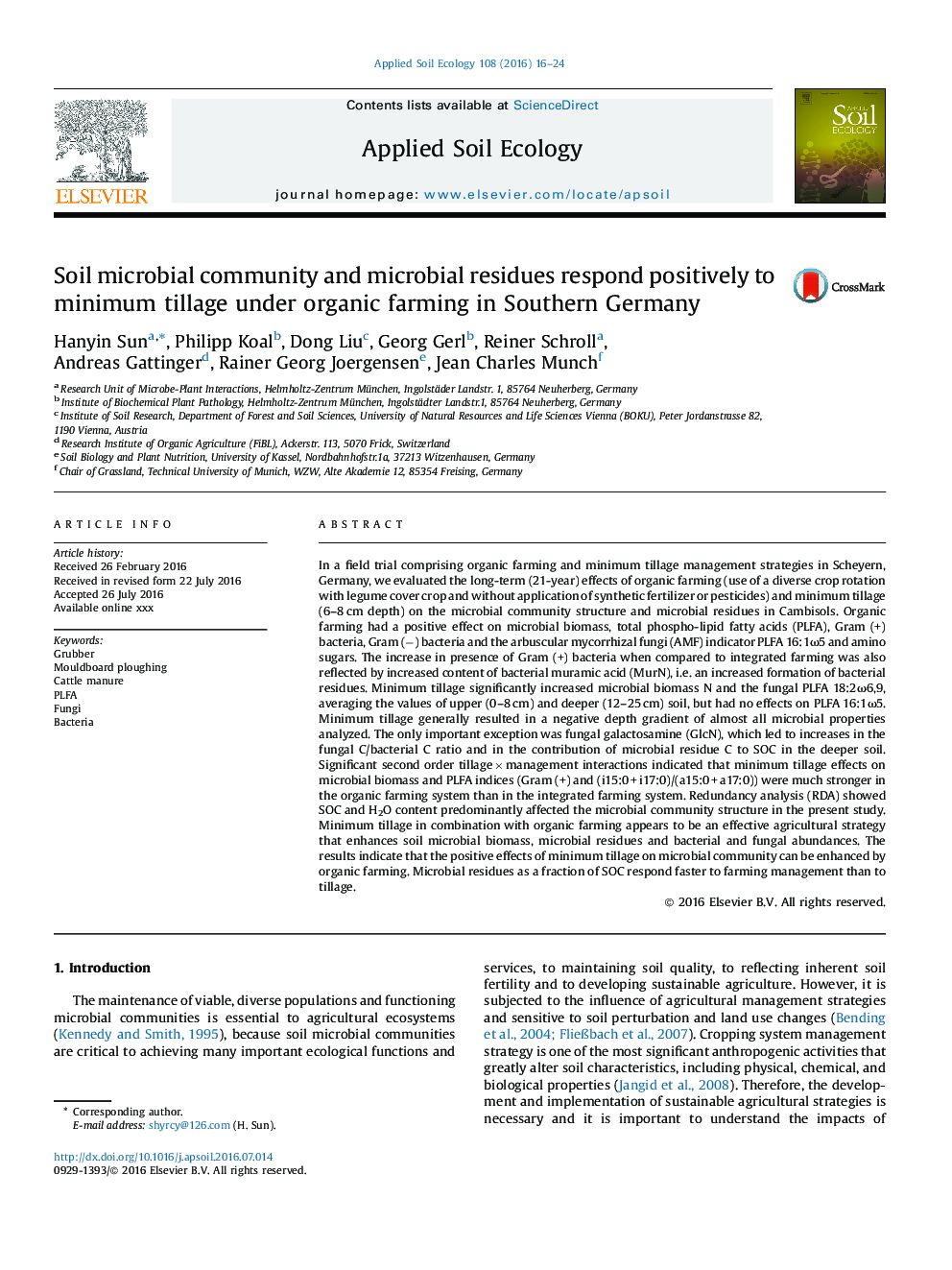| Article ID | Journal | Published Year | Pages | File Type |
|---|---|---|---|---|
| 6297424 | Applied Soil Ecology | 2016 | 9 Pages |
Abstract
In a field trial comprising organic farming and minimum tillage management strategies in Scheyern, Germany, we evaluated the long-term (21-year) effects of organic farming (use of a diverse crop rotation with legume cover crop and without application of synthetic fertilizer or pesticides) and minimum tillage (6-8 cm depth) on the microbial community structure and microbial residues in Cambisols. Organic farming had a positive effect on microbial biomass, total phospho-lipid fatty acids (PLFA), Gram (+) bacteria, Gram (â) bacteria and the arbuscular mycorrhizal fungi (AMF) indicator PLFA 16:1Ï5 and amino sugars. The increase in presence of Gram (+) bacteria when compared to integrated farming was also reflected by increased content of bacterial muramic acid (MurN), i.e. an increased formation of bacterial residues. Minimum tillage significantly increased microbial biomass N and the fungal PLFA 18:2Ï6,9, averaging the values of upper (0-8 cm) and deeper (12-25 cm) soil, but had no effects on PLFA 16:1Ï5. Minimum tillage generally resulted in a negative depth gradient of almost all microbial properties analyzed. The only important exception was fungal galactosamine (GlcN), which led to increases in the fungal C/bacterial C ratio and in the contribution of microbial residue C to SOC in the deeper soil. Significant second order tillage Ã management interactions indicated that minimum tillage effects on microbial biomass and PLFA indices (Gram (+) and (i15:0 + i17:0)/(a15:0 + a17:0)) were much stronger in the organic farming system than in the integrated farming system. Redundancy analysis (RDA) showed SOC and H2O content predominantly affected the microbial community structure in the present study. Minimum tillage in combination with organic farming appears to be an effective agricultural strategy that enhances soil microbial biomass, microbial residues and bacterial and fungal abundances. The results indicate that the positive effects of minimum tillage on microbial community can be enhanced by organic farming. Microbial residues as a fraction of SOC respond faster to farming management than to tillage.
Related Topics
Life Sciences
Agricultural and Biological Sciences
Ecology, Evolution, Behavior and Systematics
Authors
Hanyin Sun, Philipp Koal, Dong Liu, Georg Gerl, Reiner Schroll, Andreas Gattinger, Rainer Georg Joergensen, Jean Charles Munch,
